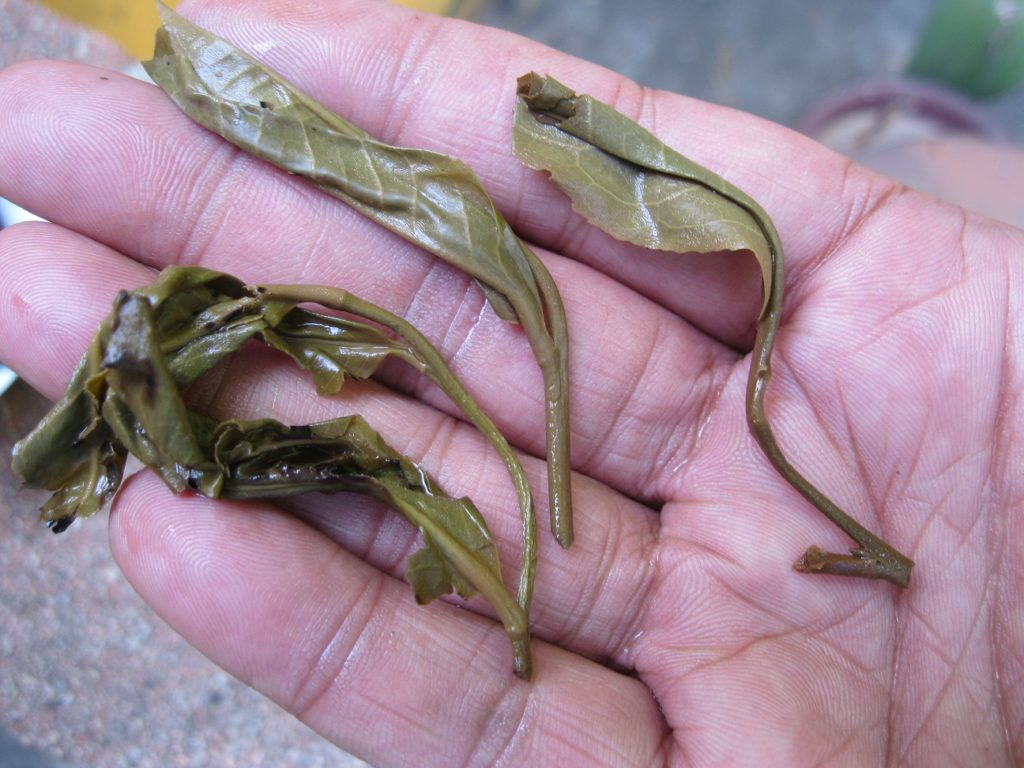Naked Ma-hei ’14 Dragon Pearl Update

The other day I was reading about a particular production when the common adage about Yi-wu teas was repeated: Yi-wu teas should be soft, not bitter, and a bit more astringent. The Naked Ma-hei has now hit this mark. Most all of the dragon pearls are by one measure or another soft and Yi-wu is not the only area of soft expression. Bang-dong, Xi-gui, and Bing-dao are all smooth operators from Lincang.
Ma-hei is one of the Six Great Tea Mountains. Its name is a transliteration from the dialect of the local Yao or Yi tribes, as is the case with most of the tea-growing areas in Yunnan. The SGTM were the officially recognized mountains tasked with producing tea for the Qing court in the north.
Whereas Xi-gui and Bing-dao provided immediate appeal, it took a spell for me to get my head around Yi-wu. With the exception of Yi-bang, fragrance is not its thing, but smoothness, fruitiness, butteriness, and thickness. I see that my notes said something about slight bitterness. That is gone. The puerions are active in the huigan.
A bit about brewing… Unlike many dragon pearls, the Naked Ma-hei is not so tightly rolled. The light storage taste disappears by the second infusion. After the first few infusions, it’s ok to push the leaves with longer infusion times as opposed to hotter water. The leaves are big and fat and release evenly from one infusion to the next. Overall, it doesn’t disappoint in warm summer days.
